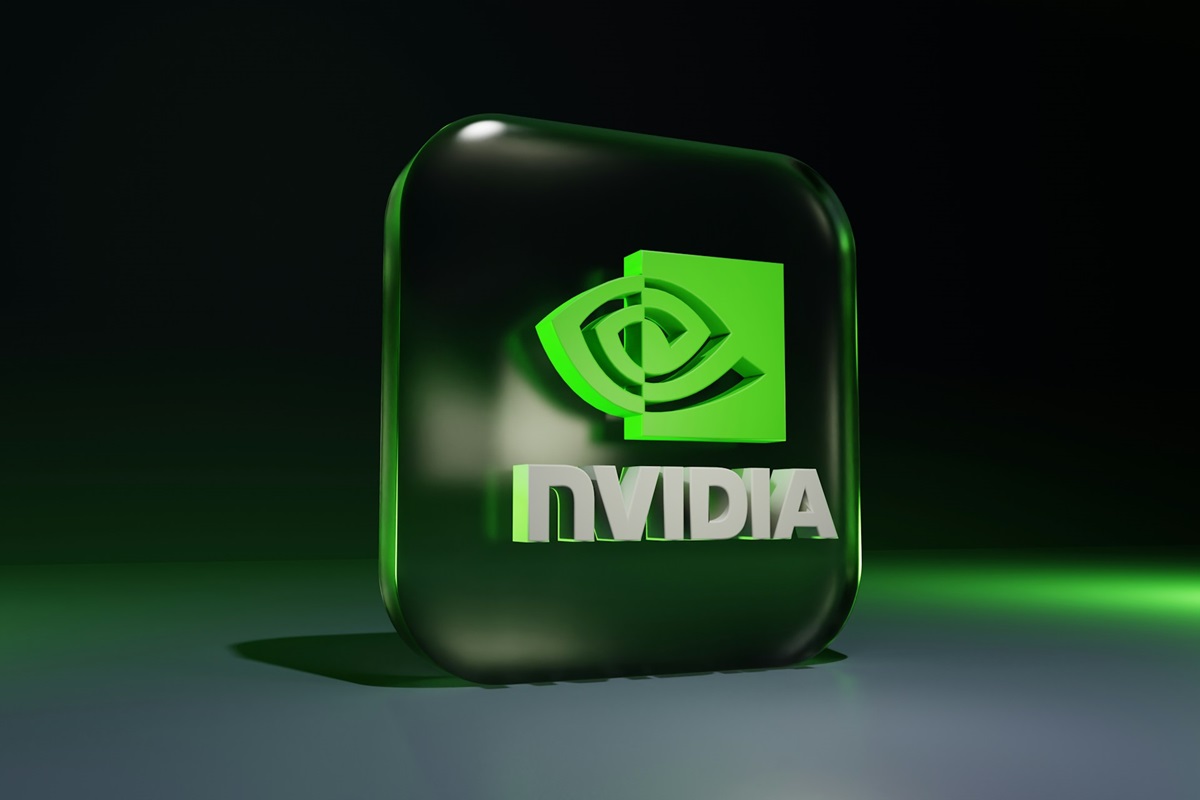Nvidia chief executive officer Jensen Huang last Wednesday, June 26, said that the current significant advantage of this company in the area of chips for artificial intelligence systems was achieved as a result of a bet made more than ten years ago, based on investments in AI worth billions of dollars and a team of thousands of engineers.

The mentioned comments by Mr. Huang were made during a Q&A session at the shareholders meeting of the specified firm. Over the past year, the value of Nvidia shares has shown growth of more than 200%. Currently, there is a very positive perception of the company’s success in the artificial intelligence industry on Wall Street. Nvidia is a developer of chips that are necessary for the training and subsequent operation of machine intelligence systems. Against the background of the so-called artificial intelligence boom, Nvidia products proved to be in high demand. Currently, there is a rapid development of AI and digital products based on this advanced technology. Nvidia’s prospects are favorable. The corresponding vision of the company’s future is based on the fact that artificial intelligence is gradually becoming what can be roughly described as the main driving force behind the transformation of the world of human civilization in almost all aspects and dimensions of its existence. AI is a source of progress and, according to popular opinion among experts, in the course of its evolution will turn into a superintelligence that surpasses the human brain in terms of cognitive abilities. The chips being developed by Nvidia are what can be described as a kind of basic element critically needed for the development of artificial intelligence. The demand for these microcircuits is on an upward trajectory and shows no signs that it will slow down, stop, or start moving in the opposite direction soon.
Nvidia split its stock 10-for-1. This year, the company’s market capitalization exceeded the historical benchmark of $3 trillion.
During Jensen Huang’s communication with investors, the issue of increasing competition in the area of development and production of chips necessary for training and ensuring the subsequent operation of artificial intelligence systems was discussed. This topic is relevant for Nvidia, as currently, its 80% market share in machine intelligence microcircuits is an indicator that’s being challenged by traditional manufacturers of corresponding products and startups starting businesses in the relevant sphere of activity. Jensen Huang, without naming specific competitors, said that the company has a strategy to maintain its market position. In this context, he noted that Nvidia has already transformed from its previous gaming focus into a brand focused on data centers. The company also aims to create new markets for its artificial intelligence. In this case, such an area of activity as industrial robotics is meant. As part of the upcoming implementation of the relevant plans, Nvidia intends to form partnerships with computer manufacturers and cloud providers.
Returning to the topic of competition in the market of chips for artificial intelligence systems, it is worth noting that from the point of view of the current state of affairs in this space, so far there is no significant threat to the present positions of the company headed by Jensen Huang. If the specified threat someday becomes a fact of objective reality, then this will definitely not happen in the short term. So far, the scenarios of the future, where Nvidia is losing its position as the leader of the microcircuits market for artificial intelligence, belong to the category of exclusively hypothetical probabilities, the implementation of which in the context of the current state of affairs is rather something that is theoretically possible, but definitely will not be materialized in the practical plane shortly. For example, AMD plans to sell $4 billion worth of machine intelligence accelerators this year. At the same time, according to preliminary estimates reported by the media, sales of only one Nvidia unit specializing in data centers will exceed $100 billion in 2024. This alignment of forces indicates that the competition threatening the market position of Jensen Huang’s company is a theoretical probability of the future, but not the state of affairs existing in the present.
During a conversation with Nvidia investors, the CEO stated that the artificial intelligence chips of this brand provide the lowest total cost of ownership. In this context, it was separately noted that microcircuits of other brands may be less expensive, but Jensen Huang’s company products are more economical in terms of their performance and cost of operation.
Nvidia CEO stated that the company has reached the so-called virtuous circle. In the technology industry, this formulation means that a certain platform has a large user base that allows it to make the improvements necessary to gain new consumers.
Jensen Huang stated that the Nvidia platform is widely available through all major cloud providers and computer manufacturers, forming an extensive and attractive base for developers and customers, which makes this functional system more valuable to clients. The company’s shareholders are satisfied with the results of its activities. They approved a non-binding vote on executive compensation called Say on Pay. Nvidia executives are paid in a combination of salary and various kinds of restricted stock units.
Jensen Huang received a compensation package worth about $34 million during the 2024 fiscal year. This indicator increased by 60% year-on-year.
Deutsche Bank analysts say that in the current year, Nvidia independently provided about 35% of the S&P 500’s total gains.
Last week and Monday, 24 June, the company’s shares in aggregate fell by $430 billion. For investors who perceive Nvidia as something like a reliable resource and a firm with guaranteed results the specified news came as a shock. At the same time, it is worth noting that in this case there was no disaster and the state of affairs did not take shape in the configuration that canceled the favorable prospects of the company in the area of development and production of chips for artificial intelligence systems. Jochen Stanzl, chief market analyst at trading platform CMC Markets, says that the dynamic of Nvidia securities is typical volatility, which is expected if stocks are on a rapid growth trajectory.
At the same time, natural volatility can have significant consequences. The corresponding scenario is especially relevant for such significant securities as Nvidia shares.
This week, Jensen Huang’s stocks of the company rose by almost 7%, which helped level out the negative indicators of last week.
It is worth noting that skeptical opinions about Nvidia’s success are also widespread in the expert community at the moment. Supporters of the relevant point of view doubt the validity of the current indicator of the company’s market capitalization.
Emily Bowersock Hill, CEO and founding partner of Bowersock Capital Partners, with reference to the 100 biggest stocks listed in London, called Nvidia’s rich valuation ludicrous. The expert says that the company’s market capitalization exceeds the similar indicator of the entire FTSE 100 index, although its sales account for less than 4% of this figure.
Analysts at The Carlyle Group do not deny the fact that artificial intelligence is transforming the space of human civilization, making revolutionary changes to this global territory of the being, but at the same time, in their opinion, the Nvidia stock bubble will burst at some point.
Jason Thomas, Carlyle’s head of global research and investment strategy in a note, says that the market seems quite adept at identifying transformational changes, however, focused on hardware that facilitates it rather than the downstream value that hardware ultimately unlocks.
It is worth noting that Nvidia’s current record figures are still based on specific tangible products. Also, the company is not a project whose activities contain the potential for further implementation in the future. Nvidia is already demonstrating success in an industry that is most likely to continue on a high-intensity growth trajectory since artificial intelligence is the main technology of modernity. With experts’ judgments that contain skeptical opinions about the company’s market capitalization, there are co-existence points of view related to the enthusiastic vision. Neil Roarty, analyst at investment platform Stocklytics, says that the fundamentals behind Nvidia’s growth remain the same. According to the expert, the belief that artificial intelligence technology, the functioning of which is provided by Jensen Huang’s company chips, will completely change the global economy, makes the market capitalization indicator at around $3 trillion more reasonable.
Nvidia’s main competitors for the title of the world’s most valuable firm are Microsoft and Apple. In this case, it is noteworthy that all three companies are involved in the so-called artificial intelligence race. Apple dramatically improved its financial performance after the iPhone deviser announced its AI-related intentions at the Worldwide Developers Conference (WWDC) in June. Up to this point, the company’s market position was on a downward trajectory, as investors feared that the firm would lag in technological development due to the lack of plans for the elaboration and use of artificial intelligence. Apple is also in talks to collaborate with Meta in the machine intelligence industry.
For the quarter ended April 28, Nvidia’s total product sales reached $26 billion. This figure is more than three times higher than in the same period last year. The company also expects its revenue for the current quarter to reach $28 billion. The mentioned indicator turned out to be higher than Wall Street forecasts.
It is worth noting that currently, many technology companies have plans to develop their own microcircuits for artificial intelligence systems and various services. For example, Meta unveiled its second-generation training and inference accelerator chip this year. Google also makes and relies on custom-designed tensor processing units (TPUs) to power its artificial intelligence models. Moreover, last year Microsoft unveiled the long-anticipated custom cloud computing chip for its Azure service. These aspirations are logical, since the autonomy of ensuring the process of digital product development and their subsequent functioning was actualized in the context of the current reality. The experience of the coronavirus pandemic, when various kinds of restrictive measures caused a failure in the supply chain, testified to the importance of technological sovereignty. It is worth noting that this sovereignty is necessary not only at the state level but also in the context of the activities of individual companies. The need for autonomy in providing chips is also being updated against the background of growing tensions in the plane of geopolitical relations.
Potentially, the success of technology giants in developing and manufacturing their own chips could significantly weaken Nvidia’s market position. However, this is a potential probability, but not a guaranteed scenario of the future.









